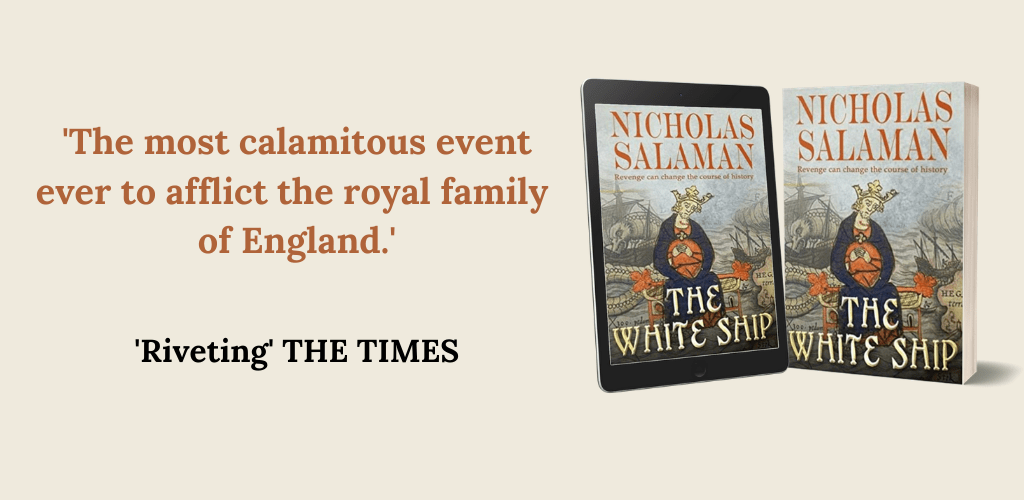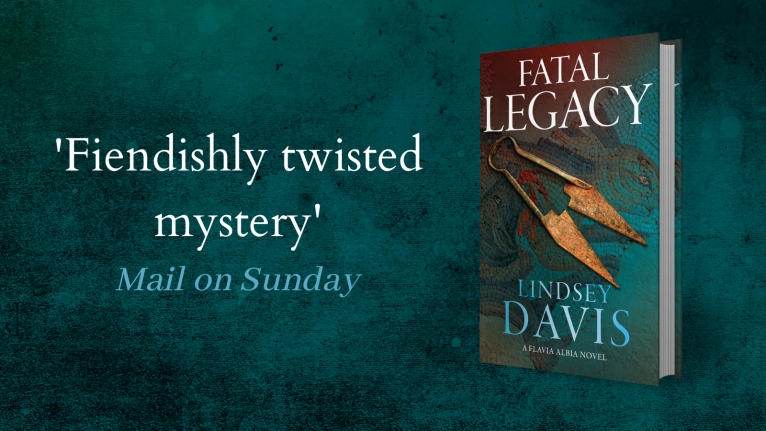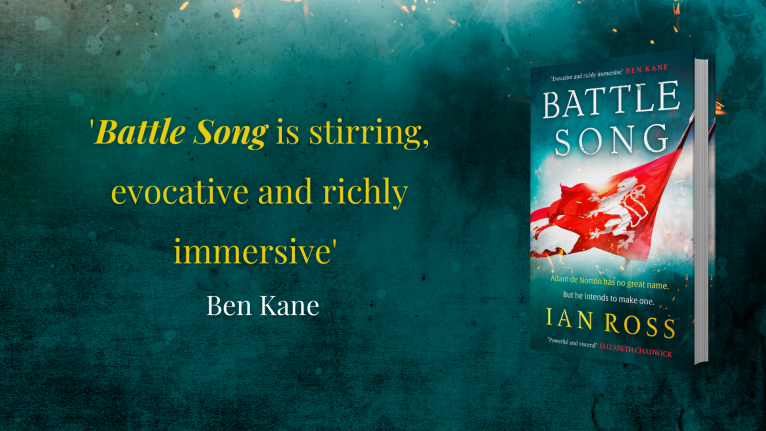The Wreck of the White Ship – the 900th Anniversary by Nicholas Salaman

‘The most calamitous event ever to afflict the royal family of England.’
25th November 1120-2020
There have been many anni horribili in the annals of the English monarchy, but none that inflicted such a crushing impact on a king’s hopes for his line’s continuity than the year 1120 AD when the blow was delivered to Henry I, King of England and Duke of Normandy.
It’s worth having a quick look at the situation in both countries in the early twelfth century. England and Normandy had been effectively joined at the hip by William the Conqueror. Henry, one of four sons of the Conqueror, was highly ambitious. Having seen (or overseen) the death of his elder brother, William Rufus, in the New Forest, and having got himself crowned as King of England, Henry had next defeated his other sibling Robert, the previous Duke of Normandy, in the Battle of Tinchebray in 1106. Very decently, he did not execute Robert, but kept him locked up for the rest of his life. He then declared himself King of England and Duke of Normandy.
Naturally there was murmuring among the barons at this point. Partly as a result of this, Henry had some trouble keeping order in Normandy. One of the reasons why the Pope had looked favourably on his taking over the dukedom was that the clergy in Normandy had complained about brother Robert’s weak grip on law and order. The barons there were notoriously unruly, and Henry had only gained the dukedom by promising the Pope that he would keep better control in Normandy than his brother. So, every summer and autumn, Henry and his army would cross the Channel from England and knock the barons’ heads together. The year 1120 was special for Henry as it was the first time he had allowed his only legitimate son, Prince William, to join him. (Henry had more illegitimate children than any other English king, but only one other child born in wedlock – Princess Matilda. William was doubly precious to him.)
The year of 1120 had ended well for Henry in Normandy. The campaigning had been effective, and William had been a success in the army. The plan now was to rendezvous at the port of Barfleur, sail to Southampton and meet up in Winchester for Christmas. The king himself had caught the ebb tide with his party a few hours before. He had instructed the shipwright of Barfleur to save the brand-new White Ship, ‘the fastest vessel afloat’, for Prince William and the mainly younger members of the court and army. You can imagine the scene – end of campaign, Christmas season in sight. Henry had even left a quantity of good Burgundy wine to cheer the party up after their long march.
The night was calm. The visibility reasonably good. The helmsman experienced. Any dangerous reefs were well known – one even had a name of its own: the Quilleboeuf Rock. Then why should such a ship drive hard upon it for no reason, splinter its timbers and sink in a few minutes? It was a question repeated many times after the event.
All who were aboard the ship – 300 of the great and good including two other children of the king and some of his best captains and wisest courtiers –drowned except one person of no importance (except to himself), the butcher of Rouen’s accountant who was there to collect money owed by the king’s soldiers. He was apparently buoyed up by his greasy old sheepskin coat which the smart folk had laughed at. It was he who told how the prince, placed in a small dinghy by his guards, apparently overruled them and made them row back to save his beloved half-sister, the Comtesse de Perche, who had cried out to him for help… but the boat was pulled over by strugglers in the water and everyone was lost.
It is said in A Nursery History of England that when the king heard of the shipwreck, ‘he fell forward in a swoon and never smiled again’. The phrase has stayed with me since I was six. I was amused to discover, many years later, that the great barons at court were so nervous of Henry’s famous temper that they could not bring themselves to tell him of the disaster. Instead they persuaded a small boy, a favourite of the king, to deliver the news.
The result of the wreck was calamitous for England since it resulted, after Henry’s death, in a bitter nineteen-year civil war between Henry’s feisty daughter Matilda – many of the barons would not accept a woman – and his nephew Stephen. It concluded with the introduction of a name that still resounds like a clarion call to the present day. Henry Plantagenet, Count of Anjou, son of Matilda, who wore the yellow broom flower (planta genesta) as his personal emblem – the name Plantagenet was subsequently adopted by his family and descendants. He became Henry II of England, married Eleanor of Aquitaine and brought a huge swathe of France, including Bordeaux, under English control (hence, indirectly, the popularity of claret in this country).
Coming to the disaster 900 years later than Orderic Vitalis, the contemporary chronicler who wrote of the wreck and its aftershocks, I have always thought there was something fishy about it, no pun intended. Henry had many enemies. It was only on reading Professor Judith Green’s Henry I, King of England and Duke of Normandy that a fully laden plot complete with contemporary characters – with more than a grudge – came to light. The perpetrator – mentioned by Professor Green as a seriously wronged mother, daughter of the king himself – struck me as being a prime candidate for an orchestrator of sabotage.
So, there you have it. Recreate the scene. A calm winter night. The smell and the sound of the sea. The babble of talk and laughter. The splash of oars. And suddenly, shockingly, the sound of shivering timber, the icy stab of the water and the cries of drowning men. And ponder. Did this just happen or was it planned and perpetrated?
Something at least to ponder over, and perhaps raise a glass about, on 25th November in this year of grace 2020.
Get your copy of The White Ship here






